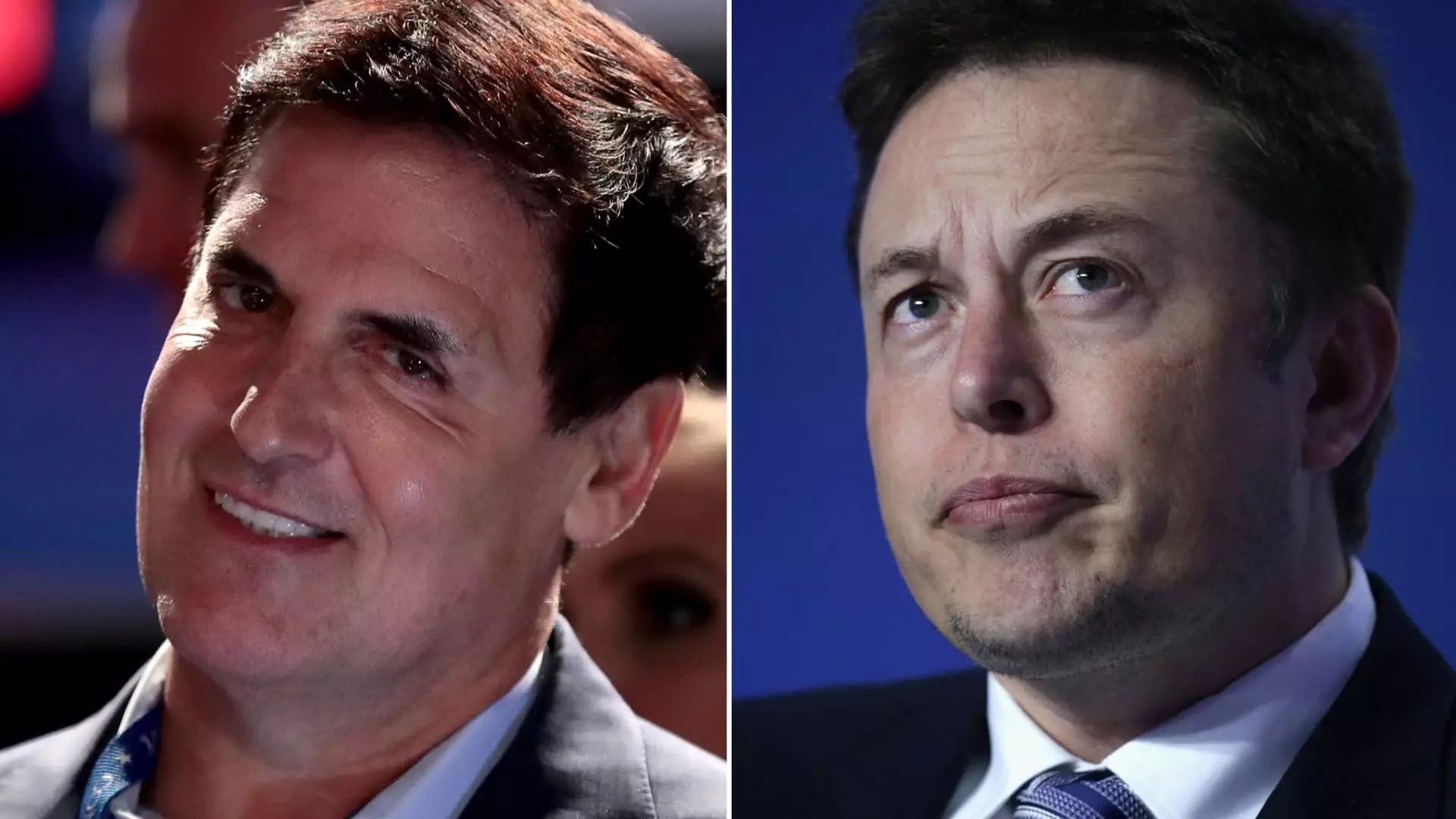In a landscape where business tycoons delve into political realms, the recent exchange between billionaire investors Mark Cuban and Elon Musk presents an intriguing case study of loyalty, opportunity, and the tenuous nature of alliances. Cuban, known for his outspoken and candid nature, has urged Musk to reconsider his burgeoning support for Donald Trump, warning of the potential pitfalls that come with such an alliance. This caution reflects not only a personal concern for Musk but also raises broader questions about the intersection of wealth, politics, and trust.
Cuban’s notable warning stems from his experience, implying that Trump’s loyalty is transactional at best. He articulated in a social media post that Musk might find himself in need of Trump’s support at a critical juncture—only to discover that the former president prioritizes his interests above all else. Cuban’s perspective invites a deeper exploration of political pragmatism versus genuine loyalty. In the high-stakes world of political endorsements, the expectation of reciprocity can often lead to disillusionment, especially when alliances appear to skew towards opportunism rather than mutual benefit.
Musk’s recent pivot from a critical stance towards Trump to an endorsement represents a significant shift in his public persona and positions him in stark contrast to his earlier sentiments. Just a year prior, Musk took to social media to express open disdain for Trump, yet the current political climate appears to have realigned Musk’s priorities. His claims regarding conspiracy theories about Democrats manipulating immigration suggest a willingness to adopt more controversial political strategies, aligning himself closely with Trump’s narrative.
This transformation underlines the fluidity of political allegiances among elite figures in the business world. While identifying with Trump’s camp might offer Musk potential influence and access, it simultaneously raises questions about the authenticity of such a partnership. Can true collaboration exist when the foundation of trust is built on fluctuating interests? Cuban challenges the sustainability of such relationships by emphasizing the inherent risks involved in political dependency.
As the 2024 presidential race heats up, Cuban’s clear support for Vice President Kamala Harris signals a profound divergence in strategies among the billionaire class. Cuban’s advocacy for Harris’s economic agenda, despite some skepticism surrounding her proposed tax rate increases, positions him as an ally for more progressive economic policies. His suggestion of taking on a role at the Securities and Exchange Commission further emphasizes his commitment to regulatory reform—an area he believes is pivotal for business integrity and growth.
While Musk flirts with the idea of a government efficiency commission—a proposal that aligns closely with Trump’s vision—Cuban’s advocacy for Harris reveals a schism within the entrepreneurial elite. Each businessman is not only navigating personal ambitions but also attempting to shape the political landscape to suit their visions. This contest creates a rich tapestry of competing ideologies and methods, with Cuban pivoting towards accountability and regulatory reform while Musk pursues deregulation and government efficiency.
The dynamic between Cuban and Musk exemplifies broader themes that underscore the complexity of the business-political nexus. As they maneuver through their respective alliances, the notion of loyalty looms large. The lessons Cuban seeks to impart about Trump are rooted in a historical understanding of political behaviors; many have learned the hard way that reliance on self-interested figures can lead to disappointment.
An essential aspect of this discourse is the shifting responsibilities of billionaires in politics. As these influential figures endorse candidates, they are often perceived as wielding significant power. However, their ultimate effectiveness may evaporate in the absence of genuine trust and reciprocated loyalty. Cuban’s warning serves as an important reminder of the potential consequences of leveraging such alliances.
As Musk and Cuban chart their political paths, the nuances of their choices will shape not only their futures but also reflect the broader narratives about power, loyalty, and the risks associated with navigating political waters. Whether these billionaire alliances yield fruitful partnerships or collapse under the weight of self-interest remains to be seen, but one thing is certain: in politics, allegiances can be as fleeting as they are strategic.


Leave a Reply